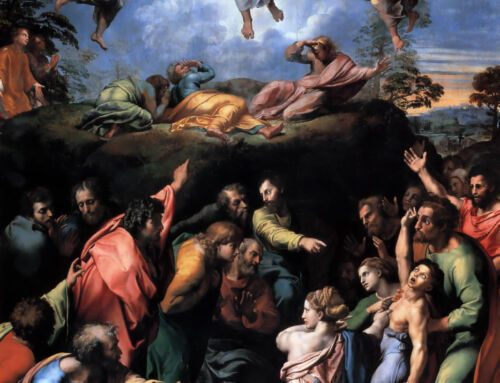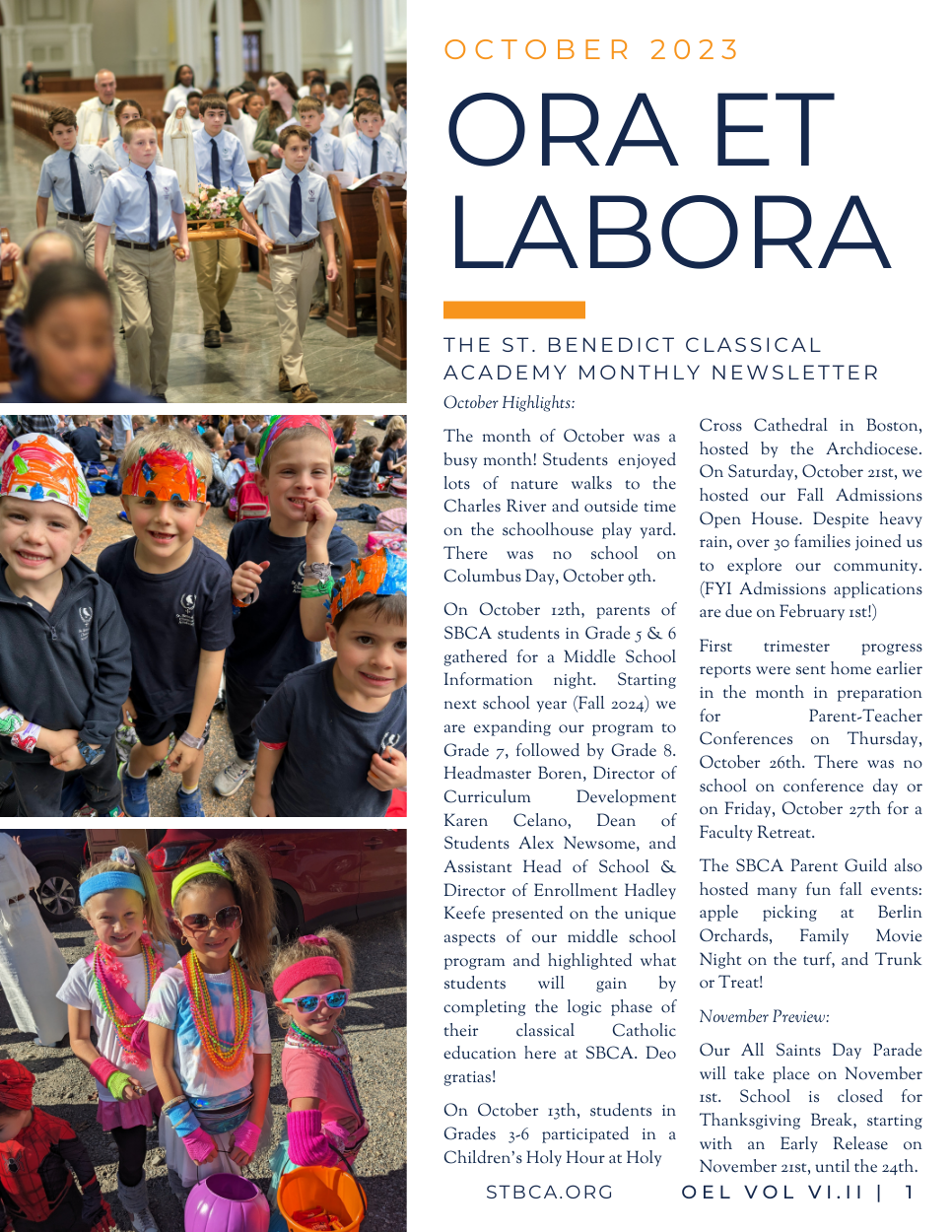As Ash Wednesday approaches, our community here at SBCA begins to rally around the three pillars of Lent: prayer, fasting, and almsgiving. Of these three pillars, I have found that for my students fasting often seems the hardest to understand. Prayer is relatively easy: through our Lenten prayer, we draw closer to God, confess and apologize for our sins, and ask for His mercy. Almsgiving, too, is easily understood as charity and kindness practiced towards our neighbors. But it can be hard to see the connection between giving up food and drawing closer to God.
As I reflected on this question (and perhaps in an effort to motivate myself for the upcoming fast!), it occurred to me that we can perhaps understand the meaning of fasting in the same way that we understand the meaning of Scripture. The Christian tradition proposes that Scripture has a four-fold meaning: its literal meaning (what the text actually says); its moral meaning (what we can learn about virtue and the moral life from the text); its allegorical meaning (what we can learn about the spiritual life); and its anagogical meaning (what we can learn about our final end with God). In a similar fashion, I’d like to propose a four-fold meaning of fasting, which can perhaps help us enter the practice with more richness.
The literal meaning of fasting is simply abstinence from food, resulting in hunger. This hunger is uncomfortable and sometimes even painful. The Old Testament often presents fasting as a penance for sin, undertaken to demonstrate our genuine sorrow for the ways we have wronged God and others (see Psalm 69:10). As Christians, we know that the discomfort we feel in our bodies when we fast enables us to participate in Christ’s Passion, offered in reparation for sin. For this reason, the literal physicality of the fast is important and cannot be neglected.
Then there is the moral meaning of fasting: fasting is a school of virtue. Fasting teaches us to practice moderation, temperance, and self-control, and thus makes us more fully human. Unlike animals, we human beings have the ability to resist our instincts and deny ourselves momentary pleasures for the sake of a greater good. Fasting from food during Lent empowers us with the moral virtue we need to withstand even greater temptation if we are called to do so. Christ Himself showed us the truth of this, when His forty-day fast in the desert prepared Him to confront the devil with courage and resolve (Matthew 4:1-11).
So far, the literal meaning of fasting could be seen as the “truth” of fasting and the moral meaning could be seen as its “goodness.” But, in my view, it is the allegorical and the anagogical meanings of fasting that reveal its beauty. In an allegorical sense, fasting reflects the reality that as human beings we are fashioned as embodied souls. Fasting creates a state of hunger in our physical bodies that makes our flesh experience what our souls, by analogy, should always be feeling: a hunger for God, which should consume us (Psalm 119:20) and fill us with desire for the “bread of life” (John 6:35). When our bodies fast and we suffer the pangs of hunger and longing for physical food, we are called to ask: do our souls feel the same overwhelming longing and desire for God and for Jesus Christ?
This desire attains its fulfillment when we consider the anagogical meaning of fasting, orienting us toward our final end. Just as a feast tastes so much better after a period of physical fasting, fasting here on earth arouses our eagerness for the heavenly feast we hope to enjoy and expands our capacity to enjoy it deeply and fully. Fasting prepares us to receive God more fully; thus, the prophets of the Old Testament and the Apostles of the New fasted to prepare themselves to receive God’s Word and His Spirit. And fasting reminds us that the true fulfillment of all our longings, body and soul, is not here on earth, where we are only pilgrims, but in our heavenly home – a home we know has been promised to us and has been prepared for us. Fasting inspires us, with John the Apostle, to cry out with eager anticipation, “Come, Lord Jesus!” and prepares our souls to hear His answer: “Surely I am coming soon!” (Revelation 22:20).
As we enter Lent this Wednesday, I pray that all of us in the SBCA community find that our season of fasting fills us with hunger for Christ our Lord, who heals our pain, forgives our sins, girds us with virtue, restores our lives, fulfills our every longing, and welcomes us into His feast with joy.
AUTHOR: Karen Celano, Director of Curriculum








